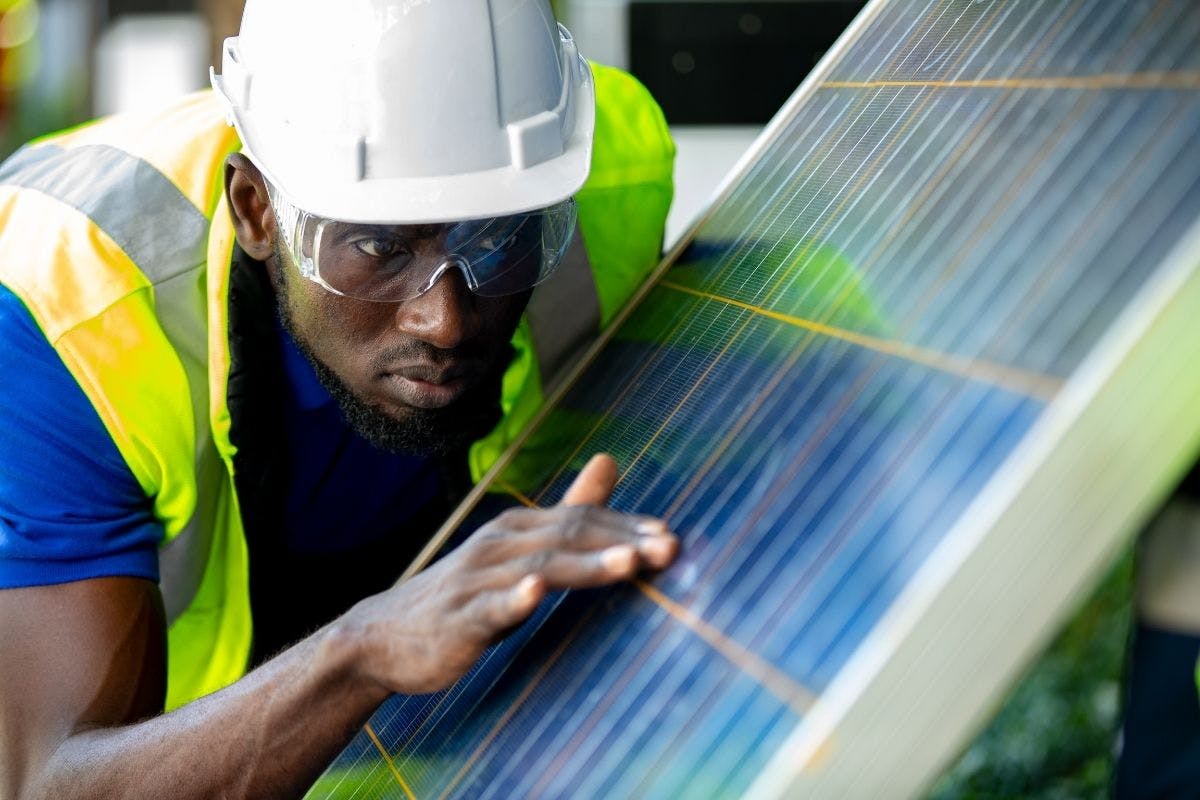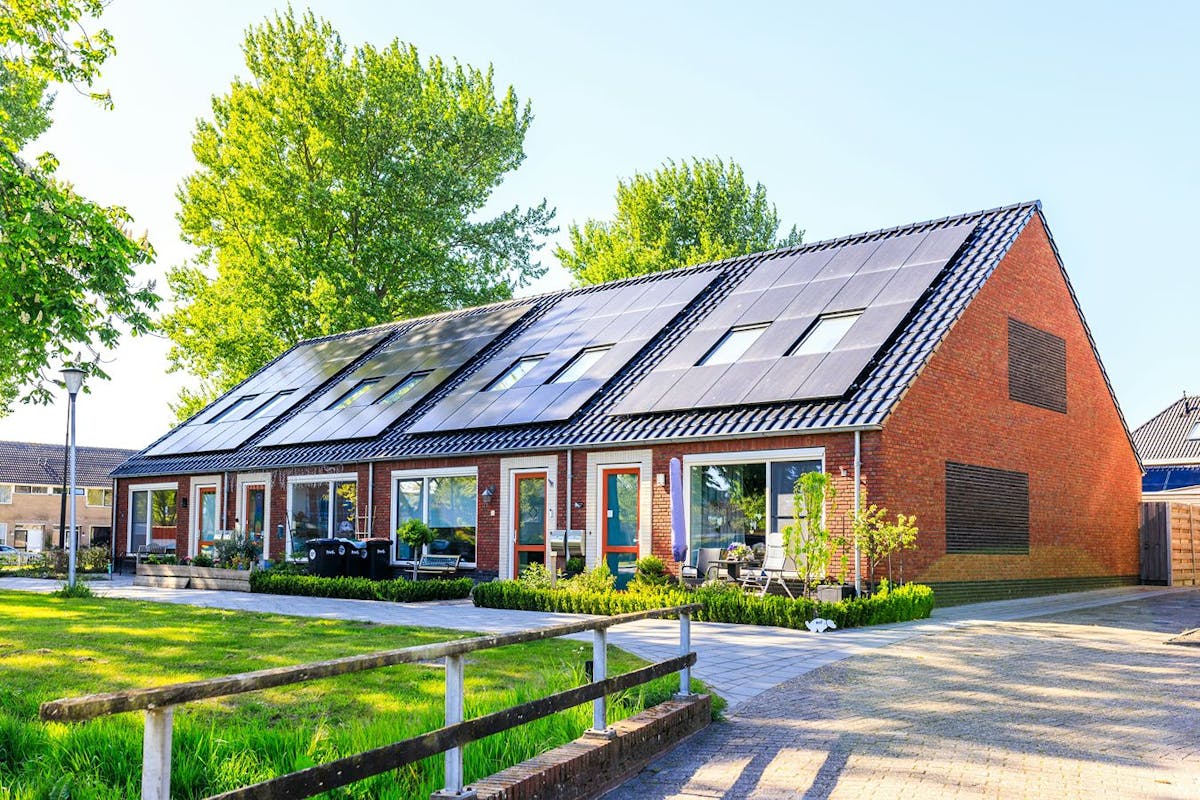How Do I Know My Solar Panels Are Working?
Last edited
Author
Andrew Blok
Electrification and Solar Writer and Editor
Editor
Ryan Barnett
SVP, Policy & New Market Development

If you have home solar panels or are considering going solar, knowing the status and efficiency of your solar power system is important to your home’s energy and budget’s bottom line. Catching a problem early — whether it’s a simple obstruction or a component failure — means you can quickly restore your system's efficiency. Modern systems often provide status alerts, but every homeowner should know how to do a quick manual check.
This guide provides simple steps for checking on your solar system and getting back to maximum energy production and savings.
See how much you can save by going solar with Palmetto
How to tell if my solar panels are working
For those wondering, “Are my solar panels working?” It can be helpful to check the status of your solar panels on a regular basis, no matter their age. Catching issues early will help you solve them quickly and get back to producing green, clean energy.
If you have a relatively modern solar panel system, you should get alerts or notifications about its status if an issue is detected. One way of tracking your home energy use — whether you’ve gone solar or not — is with the new Palmetto app. You can download the app, start your account, and see ways to save money, for free.
If you want to check on the status of your system to make sure everything is working correctly, try these five steps.
1. Inspect your solar inverter
The most common point of failure for any solar energy system is the inverter. This device converts the direct current (DC) electricity your panels generate into the alternating current (AC) power your house uses. If the DC to AC inverter fails, it can appear as though your solar panels are not working.
Many inverters come equipped with status lights that indicate how the system is operating. Typically a green light means everything is good, an orange light means a potential issue has been detected, and a flashing red light indicates a problem with the system.
Possible issues can include overloaded or faulty wiring, failed microinverters, and damage from animals. If an issue is detected, you should contact a qualified solar technician to take a look at your system.
2. Examine your electric meter
Your electric meter monitors how much electricity your home consumes. When you go solar, you should consume less electricity from the utility, because your solar panels will supply most of your needs. In the middle of a sunny day, if you participate in net metering and aren’t using a lot of power, your excess solar electricity will flow back into the utility grid, and your meter will credit you for that excess energy production.
As a result, one easy way to tell if your solar panels are working is to check your electric meter during a bright, sunny day. If your panels should be supplying all the power your home needs, but the electric meter shows you’re drawing power from the grid, there’s likely an issue with your solar system.
Some solar installations will also have a solar meter that measures how much electricity your photovoltaic (PV) panels have generated and displays essential information for the homeowner and solar installer to review.
The key data point on the solar meter is the total kilowatt-hours your solar panels have created. This number should always be on an upward trend during daylight hours because your panels should always be generating some electricity. If the total kilowatt-hours aren’t increasing, that’s a good indication something is wrong with your solar power system.
3. Review your electric bill
One of the top reasons most people install solar panels is to lower their electricity bills. If your solar panels are working, your utility bill should be less than before you had your system installed.
The amount you pay each month can fluctuate with how much power your residential solar system generates and how much you draw from the utility grid. However, you should still see a reduction from pre-solar bill amounts. If your utility bills start getting high again, it’s likely your solar panels are not working as they should.
See how much you can save by going solar with Palmetto
4. Check the weather
The amount of electricity your PV system generates depends on the amount of sunshine it receives. This is especially true when you consider the day-to-day weather forecast, long-term seasonal effects, and overall climate where you live.
If you notice your power generation has recently fallen below what’s typical, you might have simply endured a recent stretch of bad weather.
Check historical trends and future projections for weather in your area to better understand how your solar panels will create electricity for your home. The number of peak sun hours your home receives each day depends on the weather and the season.
You can also review historical trends in a production monitoring app like the Palmetto App to compare current production rates to previous years.
From Palmetto
5. Remove any obstructions
Anything that blocks sunlight from hitting your solar PV panels can lower their efficiency. Possible obstructions include tree branches, dust, dirt, bird poop, and more.
Other ways you can keep your solar panels free of obstruction include:
- Cleaning your solar panels
- Trimming overhanging tree branches
- Spraying the panels with water from a hose once a month
- Getting your panels professionally cleaned once a year
What should I do if my panels aren't working?
If you discover your residential solar panels are not working properly, you need a plan of action. Before picking up the phone to call for solar panel maintenance you can perform a few quick checks to further diagnose the issue.
- See if a circuit breaker tripped on your electrical panel.
- Restart your inverter, as this can sometimes clear out any faults in the system.
- Take a look at your wiring to make sure nothing looks damaged or out of place.
If everything seems to be working correctly, your next step should be to contact solar service professionals to come out and troubleshoot your system.
They will analyze your system for faults and complete any necessary repairs. A thorough checkup typically includes a comprehensive investigation of the solar cells, inverters, wiring, mounting hardware, and any other components. The solar technicians can also verify how much power you are producing, address system vulnerabilities, and more.
Make sure your solar panels are working correctly
You deserve maximum performance from your solar power system, but as with any other form of technology, problems can happen. If you think you might have an issue, you can conduct a minor checkup of your solar panels to see if anything obvious is causing drops in performance. While restarting the inverter or cleaning your panels can sometimes be enough to get your system working again, they're not always the answer.
If the solar company that did the original installation is no longer in business, Palmetto may be able to help. At the time of this writing, we service solar panel systems installed by other companies in California, Florida, Pennsylvania, and Texas. Offerings may change over time.
For ongoing solar service, our Palmetto Protect plan is designed to keep your solar panels working correctly and reliably, and keep you in the loop about all of it.
See what solar can do for you:
Frequently asked questions
Do solar panels work on cloudy days?
Solar panels generate the most electricity on clear days when the sun is high in the sky but will still work on cloudy days. On overcast days, solar panels produce significantly less electricity.
How do I know if my solar panels aren’t working?
If you have access to production data through an app or online portal, that’s one easy way to check. You can also look for obvious damage to panels or other equipment, which could disrupt service, and dirt or other objects that could temporarily reduce production.
Who do I call if my solar panels aren’t working?
Your best bet is your solar installer. If your installer is out of business or won’t service your panels for any reason, you’ll need to find another company.
What if my solar panels aren’t working and my installer is out of business?
You’ll need to find another solar installer to look at your solar panels. You can try Palmetto’s service portal to see if we work in your area.



